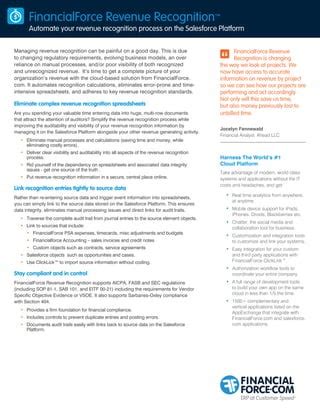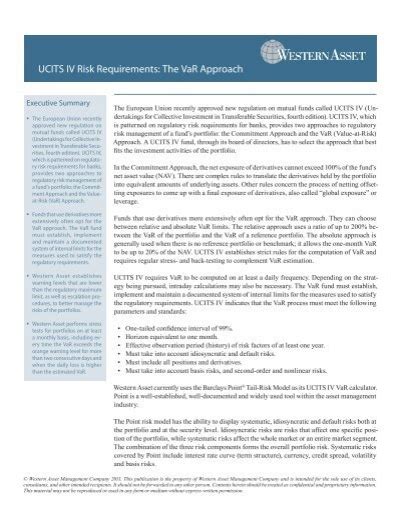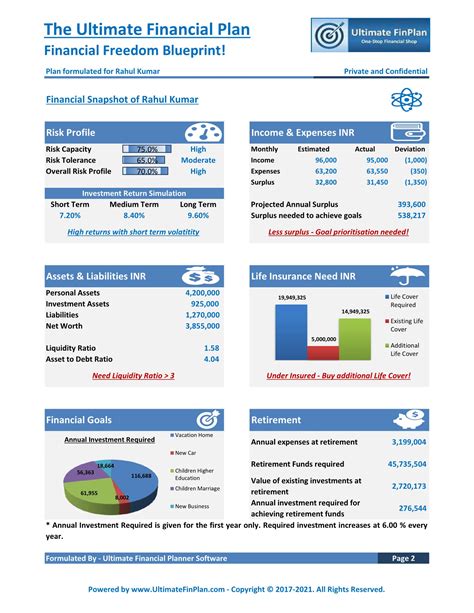Estate planning is a crucial step in securing your legacy and ensuring that your assets are distributed according to your wishes. It goes beyond just writing a will; it involves careful consideration of various legal documents, choosing the right executor, and understanding the impact of taxes and trusts. In this article, we will explore essential tips for estate planning and asset distribution, offering insights from legal experts to help you protect your beneficiaries’ interests and avoid common pitfalls. Whether you’re just starting or revisiting your estate plan, this guide will provide the information you need to make informed decisions.
Discover more about this topic with alijyun.com in detail.
1. Importance of Estate Planning
Estate planning is an essential process that ensures your assets are managed and distributed according to your wishes after your death. Without a proper estate plan, your loved ones may face legal complexities, financial burdens, and emotional stress during an already difficult time. Estate planning allows you to take control of your legacy, providing clear instructions for asset distribution and minimizing potential conflicts among heirs.
One of the key benefits of estate planning is the ability to protect your beneficiaries. By clearly outlining who will inherit your assets, you can prevent disputes and ensure that your loved ones are taken care of. Additionally, estate planning can help reduce the tax burden on your estate, maximizing the value of the assets passed on to your heirs.
Moreover, estate planning allows you to make decisions about your medical care and financial matters if you become incapacitated. By designating a power of attorney and setting up healthcare directives, you can ensure that your wishes are respected even if you cannot communicate them. Ultimately, estate planning provides peace of mind, knowing that your affairs are in order and your loved ones are protected.

2. Key Documents for Estate Planning
Creating a comprehensive estate plan requires several key documents to ensure that your assets are distributed according to your wishes and that your loved ones are protected. The most foundational document is the will, which outlines how your property and assets will be distributed after your death. It also allows you to designate a guardian for minor children, ensuring their care is handled by someone you trust.
Another crucial document is the living trust, which helps manage your assets during your lifetime and can bypass probate, allowing for a more efficient transfer of assets to your beneficiaries. Additionally, a durable power of attorney is essential, as it designates someone to make financial decisions on your behalf if you become incapacitated.
For healthcare decisions, a healthcare directive, also known as a living will, outlines your wishes for medical treatment in case you are unable to communicate them yourself. Together, these documents form the backbone of a well-structured estate plan, providing clarity and ensu

3. Choosing an Executor
Choosing the right executor is a critical decision in the estate planning process, as this individual will be responsible for carrying out your wishes and managing your estate after your death. The executor’s duties include gathering and valuing assets, paying off debts and taxes, and distributing the remaining assets to your beneficiaries as specified in your will.
When selecting an executor, it is essential to choose someone you trust implicitly, as they will have significant responsibilities. This person should be organized, detail-oriented, and capable of handling complex financial and legal matters. It’s also important to consider the potential burden this role might place on the individual, as the process can be time-consuming and emotionally challenging, particularly if they are a close family member.
Additionally, the executor should be someone who can act impartially, especially in situations where there might be family disagreements. If you are concerned about family dynamics or the complexity of your estate, appointing a professional executor, such as a lawyer or a trust company, might be a wise decision. This can help ensure that your estate is managed efficiently and according to your wishes, reducing the likelihood of disputes among beneficiari

4. Power of Attorney and Healthcare Directives
Establishing a Power of Attorney (POA) and Healthcare Directives is crucial in estate planning to ensure your affairs are handled according to your wishes if you become incapacitated. A Durable Power of Attorney allows you to designate a trusted individual to manage your financial matters, such as paying bills, managing investments, and handling property transactions, on your behalf.
Healthcare Directives, which include a living will and a healthcare power of attorney, provide clear instructions about your medical care preferences. The living will outlines the types of medical treatments you do or do not want if you cannot make decisions yourself, while the healthcare power of attorney designates someone to make healthcare decisions for you.
By having these documents in place, you can prevent potential confusion and ensure that your financial and medical needs are managed according to your preferences. These directives provide peace of mind, knowing that your affairs are in capable hands, even in the event of incapacitation.
5. Trusts: Types and Benefits
Trusts are versatile estate planning tools that can offer numerous benefits, including asset protection, tax advantages, and efficient distribution of your estate. There are several types of trusts, each serving different purposes based on your specific needs.
A revocable living trust allows you to retain control over your assets during your lifetime, with the flexibility to modify or revoke the trust as circumstances change. Upon your death, the assets in the trust can be distributed to beneficiaries without going through probate, which saves time and preserves privacy.
An irrevocable trust, on the other hand, cannot be altered once established. This type of trust is often used for tax planning, as it can remove assets from your taxable estate, potentially reducing estate taxes. Irrevocable trusts are also valuable for protecting assets from creditors and legal judgments.
Special needs trusts are designed to provide for beneficiaries with disabilities without affecting their eligibility for government benefits. Meanwhile, charitable trusts allow you to support causes you care about while also benefiting from tax deductions.
Incorporating the right trust into your estate plan can ensure that your assets are managed and distributed according to your wishes, while also providing financial benefits for you and your beneficiaries.
6. Tax Considerations in Estate Planning
Tax considerations are a vital component of estate planning, as they can significantly impact the value of the assets you pass on to your beneficiaries. Proper planning can help minimize the tax burden on your estate and ensure that more of your wealth is preserved for your heirs.
One of the primary taxes to consider is the federal estate tax, which applies to estates exceeding a certain threshold. By utilizing strategies such as gifting assets during your lifetime, you can reduce the size of your taxable estate. The annual gift tax exclusion allows you to give a certain amount to individuals each year without incurring gift tax, effectively lowering your estate’s value.
Another consideration is the capital gains tax on inherited assets. While heirs often benefit from a step-up in basis—meaning they only pay capital gains tax on the appreciation after inheritance—certain strategies, like trusts, can help manage these taxes more efficiently.
Additionally, state estate or inheritance taxes may apply depending on where you live, and these can vary significantly by jurisdiction. Some states have lower exemption thresholds than the federal level, making it crucial to understand local laws.
By working with an estate planning attorney or tax advisor, you can develop strategies that address these tax issues, ensuring that your estate is distributed as efficiently and effectively as possible.
7. Asset Distribution Strategies
Effective asset distribution strategies are key to ensuring that your estate is divided according to your wishes and that your beneficiaries are taken care of. One fundamental strategy is to clearly outline your intentions in your will, specifying how each asset should be distributed. This reduces the likelihood of disputes among heirs and provides clarity during the estate administration process.
Specific bequests involve naming particular items or amounts of money to individuals, which can be a straightforward way to allocate sentimental or significant assets. Residuary bequests address the remainder of your estate after specific bequests and expenses have been satisfied, ensuring that all remaining assets are distributed.
Another approach is to use trusts for more controlled and flexible distribution. For instance, a testamentary trust, created through your will, allows for assets to be distributed over time or upon certain conditions being met, which can be beneficial for minor children or beneficiaries with special needs.
Charitable bequests can also be incorporated into your plan to support causes you care about while potentially providing tax benefits. Regularly reviewing and updating your asset distribution plan is essential, especially after significant life events or changes in financial circumstances, to ensure that it continues to reflect your current wishes.
8. Protecting Beneficiaries’ Interests
Protecting beneficiaries’ interests is a crucial aspect of estate planning, ensuring that your loved ones receive their inheritance as intended and are safeguarded from potential disputes or mismanagement. One effective way to achieve this is by establishing trusts, which can provide controlled distributions and protect assets from creditors or legal claims. Trusts also offer privacy by avoiding probate, reducing the risk of disputes among beneficiaries.
Designating a trustee or executor who is impartial, responsible, and trustworthy is vital for managing and distributing your estate. This person will be responsible for adhering to your wishes and ensuring fair treatment of all beneficiaries.
In cases where beneficiaries may face challenges such as financial instability or addiction issues, consider setting up a spendthrift trust. This type of trust can provide ongoing support while safeguarding the assets from being misused.
Additionally, including a no-contest clause in your will or trust can discourage beneficiaries from challenging the terms, as it may result in losing their inheritance if they do.
Regularly reviewing and updating your estate plan, especially after major life events or changes in your financial situation, will help ensure that your plan continues to protect your beneficiaries’ interests effectively.
9. Updating and Reviewing Your Estate Plan
Updating and reviewing your estate plan is essential to ensure that it accurately reflects your current wishes and circumstances. Life events such as marriage, divorce, the birth of a child, or significant changes in financial status can impact your estate plan. Regular reviews help ensure that your plan remains relevant and effective in managing your estate and protecting your beneficiaries.
It is generally recommended to review your estate plan at least every three to five years, or sooner if significant life changes occur. During these reviews, assess whether your existing documents, such as your will, trusts, and powers of attorney, still align with your goals and reflect any new assets or changes in your family structure.
Updating your estate plan also involves revisiting your designated executors, trustees, and beneficiaries to ensure they are still appropriate and capable of fulfilling their roles. Changes in tax laws or estate planning regulations may also necessitate updates to your plan to optimize tax efficiency and compliance.
By staying proactive and making timely adjustments, you can prevent potential complications and ensure that your estate plan continues to safeguard your assets and meet your objectives. Consulting with an estate planning attorney during these reviews can provide valuable insig
10. Common Estate Planning Mistakes to Avoid
Avoiding common estate planning mistakes is crucial to ensure that your wishes are honored and that your estate is managed effectively. One frequent error is failing to update your estate plan after major life events, such as marriage, divorce, or the birth of a child. Without updates, your plan may not reflect your current circumstances or intentions.
Another mistake is not having a clear and legally valid will or trust, which can lead to confusion and potential disputes among beneficiaries. Additionally, overlooking tax implications, such as not addressing estate or inheritance taxes, can result in a significant financial burden on your estate.
Choosing an unsuitable executor or trustee who lacks the skills or impartiality needed can also create complications. Failing to address special needs, such as creating a spendthrift trust for beneficiaries with financial difficulties, may lead to mismanagement of assets.
Finally, neglecting to review and revise your estate plan regularly can result in outdated provisions that do not align with your current goals or legal requirements. Ensuring these aspects are properly managed can help prevent these common pitfalls.
Effective estate planning is essential for ensuring your assets are distributed according to your wishes and that your loved ones are protected. By understanding the importance of key documents, choosing the right executor, and implementing strategic trusts, you can create a comprehensive plan that addresses tax considerations and beneficiary protection. Regularly updating your estate plan and avoiding common mistakes will help maintain its effectiveness and relevance. Taking these steps provides peace of mind, knowing that your estate is
alijyun.com

